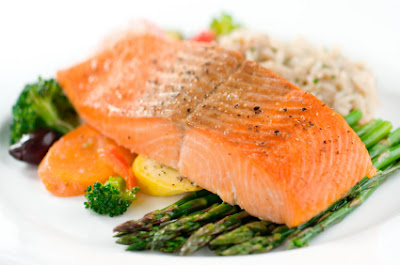 |
| For Questions Call/Text Dr. Jimenez Personally @ 915-540-8444 or Contact Us @ 915-850-0900 |
A balanced nutrition is a key element towards achieving
overall health and wellness just as equally as exercising, most importantly
because the human body relies on the energy we implement through out meals to function
effectively. Before starting any form of physical activity, it’s crucial to
properly fuel the body to get the most out of your workout routine. Heavy,
high-fat foods can cause sluggishness and fatigue during exercise, while eating
little amounts of food can offer little energy and risk the body’s ability to
excel in its performance. There’s a variety of foods that can help provide the
body with the necessary amount of energy to perform well and the timing of each
meal is also important towards the effect of energy levels during exercise.
An individual should eat a meal predominantly consisting of
complex carbohydrates approximately 3 to 6 hours before a workout. Carbohydrates
contain glucose, which is the body’s main source of energy for muscles during
physical activities. Because carbohydrates are easy to digest, they can
actually help the body use fat during exercise. Whole grains, brown rice,
couscous, millet, quinoa, and bulgur are examples of complex carbohydrates and
these can supply lasting energy to the body. Then, an individual can eat a pre-workout
snack with a high carbohydrate content such as fruits, whole-grain pretzels,
crackers, and granola, approximately 1 or 2 hours before their exercise or
physical activity to provide the body with additional energy throughout the
workout.
When it comes to protein and fat, these are not the body’s
substantial energy provider but adding them to your diet can supply enough fuel
for endurance exercises like running and long-distance biking. Adding lean sources
of protein and healthy fats to the same pre-workout meal 3 to 6 hours before
exercise provides a richer, more balanced meal. Flank steak, salmon, chicken
breasts, lean ground turkey, and tuna are examples of lean protein sources. Canola
oil, walnuts, almonds, olive oil, and flaxseed oil are examples of healthy fats
to also include. During the pre-workout snack, add small amounts of fat and
protein to the carbohydrate snack. Small portions of these include low-fat
cheese, yogurt, peanut butter, and low-fat milk.
Eating a balanced meal made up of carbohydrates, lean
proteins, and healthy fats is essential towards providing the body with the necessary
nutrition it needs to be able to perform to its fullest capabilities. But,
pre-workout hydration is equally as important as pre-workout nutrition. Dehydration
can often lead to fatigue and loss of coordination. Individuals who participate
in strenuous physical activity or exercise should be drinking from 16 to 24 oz.
of water an hour before workouts and drink 8 oz. of water every 15 minutes
during exercise. Our body depends on the energy we provide it with to function
fully and effectively throughout the day. The type of food we eat and the
amount of water we consume are important for maintaining a healthy lifestyle.
By Dr. Alex Jimenez



